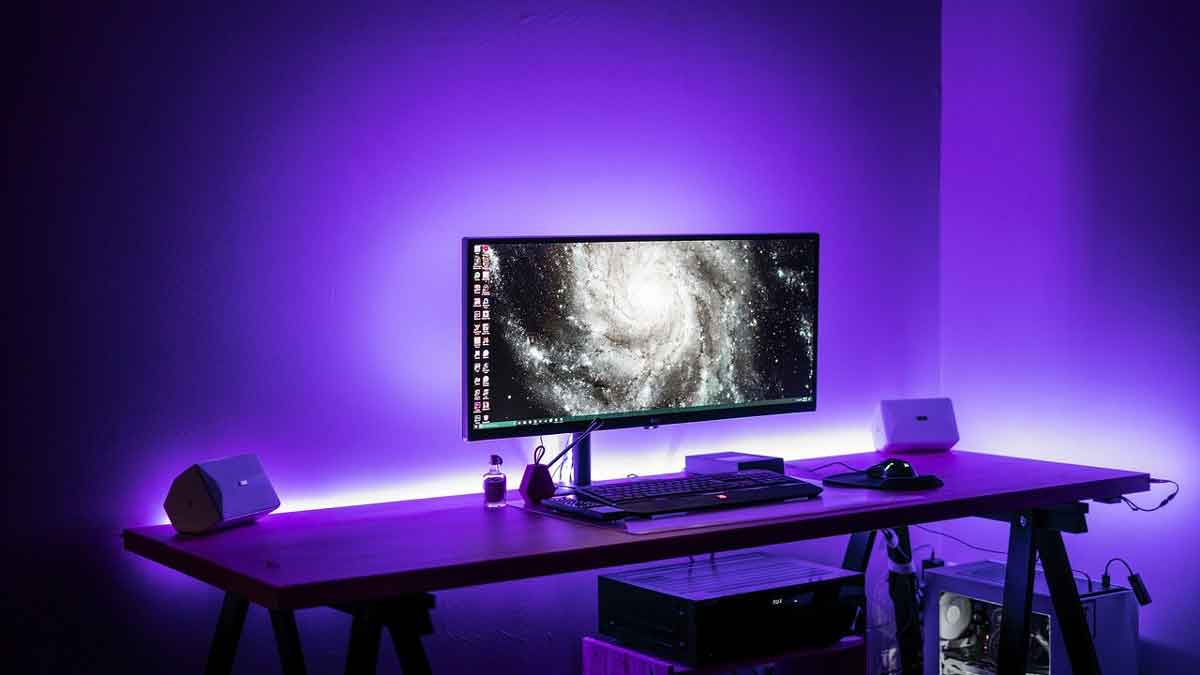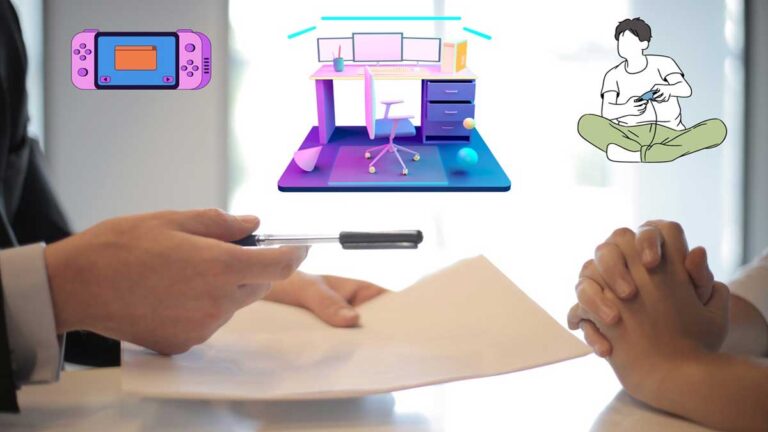How to Optimize Your PC for Gaming: 5 Easy Steps
Playing games on a PC brings an exciting and thrilling experience to gamers. But to truly enjoy your favorite games, it’s important to optimize your PC for the best gaming performance. With the appropriate hardware and software, you can achieve seamless gameplay and boost your gaming sessions to new heights.

System Requirements for Gaming
Before diving into the optimization process, it’s crucial to understand the system requirements of the games you want to play. Different games have varying hardware demands, and knowing the recommended specifications will help you determine if your PC meets the requirements. Check the game’s official website or the packaging for minimum information and recommended system requirements.
Optimize Your PC by Optimizing Hardware
To achieve optimal gaming performance, it’s essential to have the right hardware components in your PC. Here are some key areas to focus on:
1. Upgrading Graphics Card
Upgrading to a newer and more powerful graphics card can considerably improve your gaming experience as it stands as one of the most vital components for optimal gaming performance. Look for a card that meets the requirements of the games you play and offers better performance and graphical abilities.
2. Increasing RAM
RAM (Random Access Memory) plays a crucial role in gaming. Insufficient RAM can cause games to lag and stutter. Consider upgrading your RAM to the recommended amount or more to ensure smooth gameplay.
3. Choosing the Right Processor
The processor, or CPU (Central Processing Unit), is another critical component for gaming. A fast and powerful processor can handle complex game calculations and provide smooth gameplay. Research and choose a processor that suits your gaming needs.
4. Installing an SSD
An SSD (Solid State Drive) can significantly improve loading times in games. Installing your games on an SSD instead of a traditional hard drive can reduce loading screens and improve overall performance. Consider upgrading to an SSD or using it as your primary drive for gaming.
Software Optimization – How to Optimize Your PC for Gaming
Optimizing software settings and configurations can further enhance gaming performance. Here are some software optimization techniques to consider:
1. Updating Graphics Drivers
Regularly updating your graphics drivers is crucial for optimal performance. Graphics driver updates often include bug fixes, performance improvements, and better compatibility with new game releases. Check the manufacturer’s website or use automatic driver update tools to ensure your graphics drivers are up to date.
2. Removing Unnecessary Software
Unwanted software running in the background can consume system resources and impact gaming performance. Remove unnecessary programs and applications that are not required for gaming. Disable startup programs that launch automatically when you boot your PC to free up system resources.
3. Defragmenting Hard Drive
Regularly defragmenting your hard drive can improve overall system performance, including game loading times. Fragmented files can slow down read and write operations, causing games to take longer to load. Use the built-in Windows defragmentation tool or third-party software to defragment your hard drive.
4. Adjusting Graphics Settings
Tweaking in-game graphics settings can have a significant impact on performance. Lowering graphics settings, such as resolution, anti-aliasing, and shadow quality, can improve frame rates and reduce lag. Experiment with different settings to find the right balance between visual quality and performance.
5. Using Game Optimization Tools
Several game optimization tools are available that can automatically adjust graphics settings for optimal performance. These tools analyze your system and make recommendations based on your hardware. Explore popular optimization tools like NVIDIA GeForce Experience or AMD Radeon Software to streamline game settings.
Cooling and Maintenance
Proper cooling and maintenance can prevent overheating and ensure consistent performance during extended gaming sessions. Consider the following tips:
1. Cleaning Dust Regularly
Dust accumulation inside your PC can restrict airflow and cause components to overheat. Regularly clean your PC, especially the fans and heat sinks, to remove dust buildup. Use compressed air or an antistatic brush to clean delicate components.
2. Proper Airflow and Cooling
Ensure that your PC has adequate airflow by arranging cables properly and keeping the internal components well-ventilated. Consider additional cooling options, such as case fans or liquid cooling, to maintain optimal temperatures during intense gaming.
3. Overclocking
For advanced users, overclocking can be an option to extract more performance from your hardware. However, it requires caution and proper knowledge. Overclocking can increase temperatures and stress components, so make sure to research and understand the process before attempting it.
Network Optimization
A stable and fast internet connection is crucial for online gaming. Consider these optimization techniques:
1. Using Ethernet Connection
A wired Ethernet connection provides more stable and reliable network performance compared to Wi-Fi. Whenever possible, connect your PC directly to the router using an Ethernet cable to reduce latency and packet loss.
2. Updating Network Drivers
Regularly updating your network drivers can improve network performance and stability. Visit the manufacturer’s website or use automatic driver update tools to ensure your network drivers are up to date.
3. Prioritizing Game Traffic
Some routers offer Quality of Service (QoS) settings that allow you to prioritize gaming traffic over other internet activities. Enable QoS and set the priority of your gaming applications to minimize latency and ensure a smoother online gaming experience.
4. Reducing Network Latency
Network latency, also known as ping, can cause lag and affect your gaming experience. Close bandwidth-intensive applications running in the background, avoid downloads/uploads during gameplay and connect to servers closest to your location to reduce latency.
Optimizing Game Settings – How to Optimize Your PC for Gaming
In addition to optimizing your hardware and software, tweaking in-game settings can further enhance performance. Consider the following:
1. Adjusting Resolution and Refresh Rate
Lowering the resolution and refresh rate can significantly improve frame rates. Experiment with different settings to find a balance between visual quality and performance.
2. Optimizing In-Game Graphics Settings
Most games provide detailed graphics settings that can be adjusted for optimal performance. Lower settings such as shadows, textures, and effects to improve frame rates. Disable unnecessary features like motion blur or depth of field if they don’t significantly enhance your gaming experience.
3. Disabling Background Processes
Close unnecessary background processes and applications to free up system resources. This can help ensure that your PC dedicates more power to the game, resulting in better performance.
Conclusion
Optimizing your PC can significantly enhance your gaming experience. By focusing on hardware upgrades, software optimizations, cooling and maintenance, network optimizations, and in-game settings, you can achieve smoother gameplay, reduced lag, and overall improved performance. Remember to keep your drivers up to date, maintain good cooling practices, and experiment with different settings to find the optimal configuration for your system.
FAQs
Can I optimize my PC for gaming without upgrading the hardware?
Yes, by making software tweaks and adjustments, such as updating drivers, optimizing settings, and removing unnecessary programs.
Do I need to overclock my CPU for better gaming performance?
Overclocking is not necessary for everyone. It can provide performance gains but requires knowledge and caution. Consider overclocking only if you’re comfortable with the process and understand the risks involved.
Is it important to clean my PC regularly for gaming?
Yes, regular cleaning is essential for optimal performance. Dust buildup can restrict airflow and cause overheating, impacting gaming performance. Clean your PC periodically to prevent these issues.
Should I prioritize wired Ethernet over Wi-Fi for online gaming?
Yes, a wired Ethernet connection is generally more stable and provides lower latency compared to Wi-Fi. If possible, use an Ethernet connection for online gaming to minimize lag.
What should I do if my game still lags after optimization?
If your game still lags after optimization, try further reducing graphics settings, closing background processes, and ensuring your hardware meets the game’s minimum requirements. Consider upgrading specific components if necessary.





